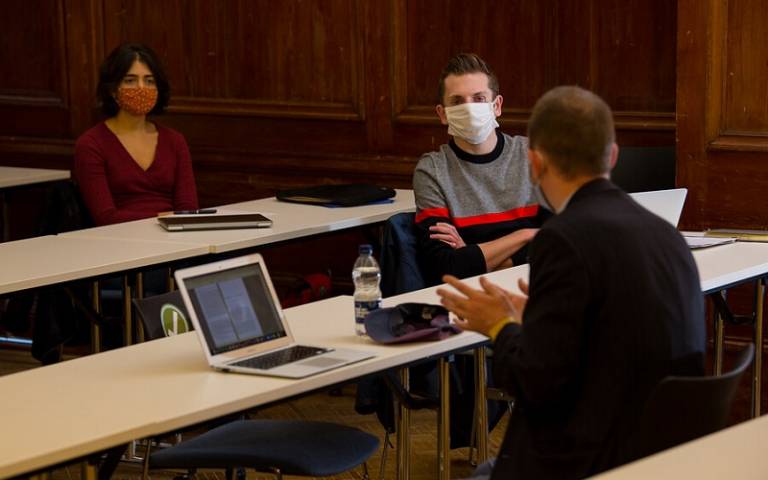Streamlined ASER reporting process agreed for Term 2
1 December 2020
SSCCs continue to drive improvement plans but reporting requirements scaled-back.

A modified Annual Student Experience Review (ASER) has been approved by UCL’s Quality Review Sub-Committee (QRSC), to maintain continuity of quality assurance (QA) processes while lightening the administrative load this year.
The lighter touch ASER reporting recognises colleagues’ competing concerns and priorities during these exceptional times. It is one of a series of temporary modifications of quality assurance processes at departmental level, to maintain UCL’s high academic standards this year.
The ASER process continues to be one of our main sources of institutional and departmental quality assurance and an important way to demonstrate compliance with OfS registration. It draws together continuous monitoring activities taking place throughout the year into an annual ‘health check’ exercise for undergraduate (UG) and postgraduate taught (PGT) provision.
ASER snapshot will take place in March
The student voice element of the ASER/SSCC cycle remains crucial: while ASER reporting activity was not required in Term One, departments received data on SharePoint, and student reps and SSCC chairs have continued to review the previous year’s progress, agree on objectives for the year and monitor progress against them.
Colleagues will build on this work in Term 2; new data and survey results will be circulated shortly and a ‘snapshot’ of ASER reporting will be taken on 31 March 2021.
Reduced reporting requirements
This year’s ASER snapshot will be minimised to:
Brief comments on those areas of the action plan for 2020/21 which departments have been able to take forward and whether this has been successful;
Brief comments about what areas departments have been required to scale back/modify/pause because of Covid-19;
Comment on what the TOM/student feedback is telling departments are new priorities. These should be framed as simple objectives and define what, if any, support departments need from OVPESA/Education Committee (in terms of review of regulations)/Digital Education/ARENA;
A student representative commentary or a student co-creation of the report;
A follow up Teams conversation between the ARENA consultant for that Faculty and the HoD /programme leads, which will focus on support in achieving objectives set for the following year.
The QRSC are satisfied that for this year, these reporting requirements provide sufficient quality assurance for internal and external (OfS registration requirements etc.) purposes.
Working in partnership
The ASER snapshot captures department’s year-round monitoring of progress against education improvement plans, in partnership with student reps.
Taking place at least once a term, Staff-Student Consultative Committee (SSCC) meetings are a vital opportunity for staff and students to discuss what is working well and what could be improved in each department. See our tips for getting off to a flying start with your SSCCs.
Student Evaluation Questionnaires (SEQs) will help departments gather feedback at the end of this term, identify ways to improve modules and the student experience, determine good practice and close the feedback loop. This term, we launched a Moodle template to help departments continue to run SEQs in a remote learning environment. Inclusion of this data into the ASER snapshot will be optional this year, but SEQs remain a key opportunity for students to influence the quality of their learning experience.
 Close
Close

